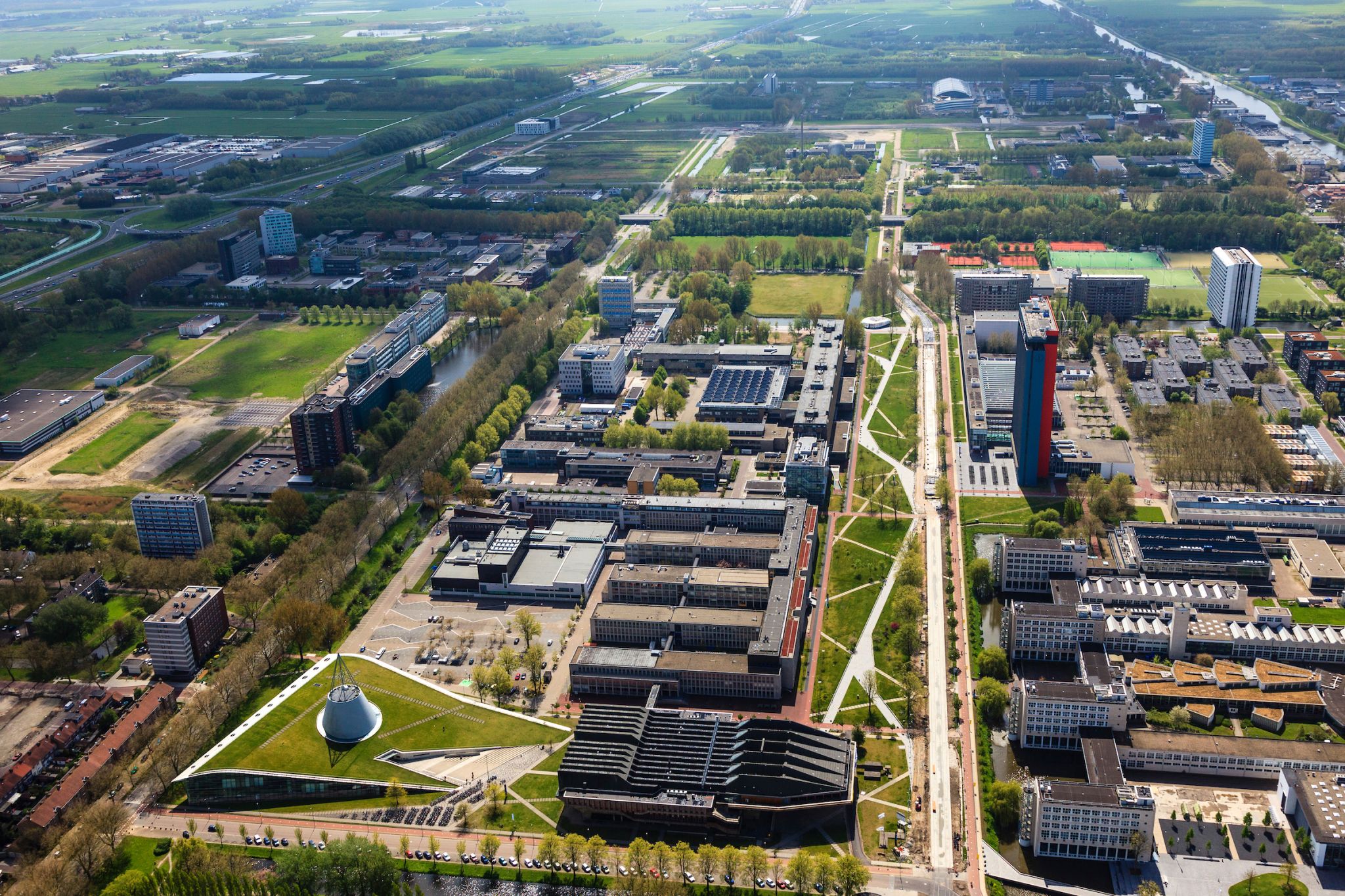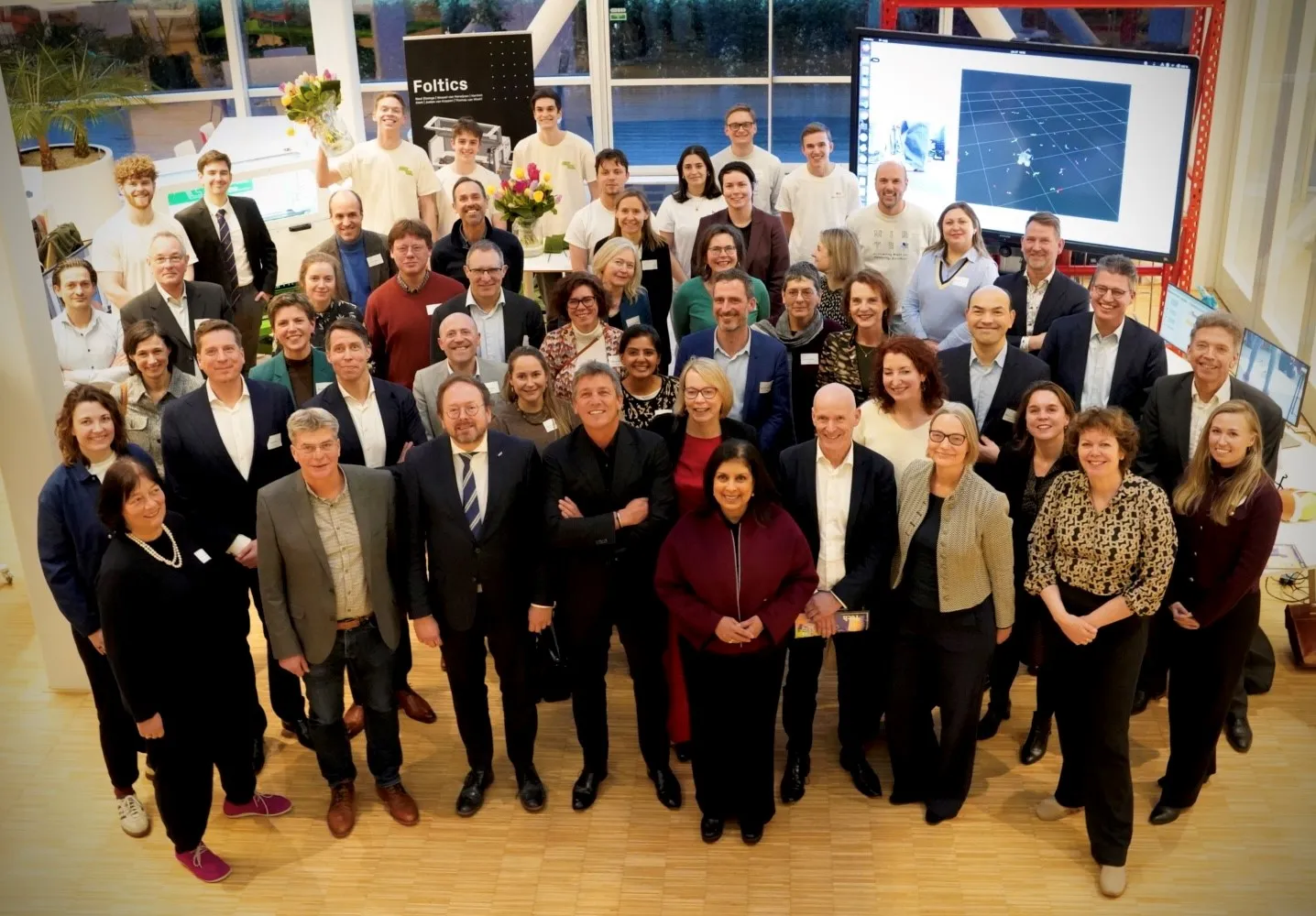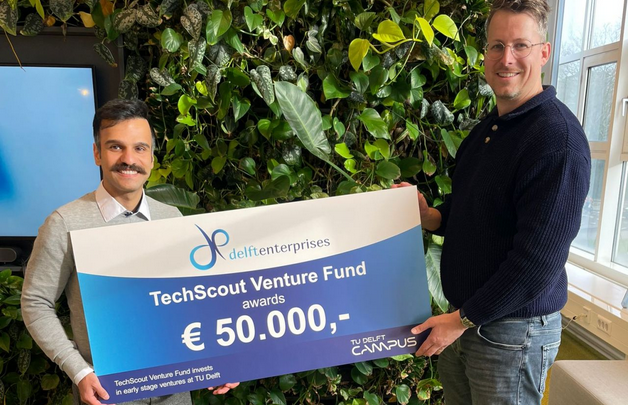The energy transition, cleaner water, healthy soils, and reduced greenhouse gases: the Netherlands faces significant challenges. To achieve these goals, an in-depth understanding of what is happening in our soil and water is essential. In the newly opened Delta Lab at Deltares in Delft, experts are examining on a microscale how pollutants behave, how greenhouse gases are released from wet soils, and the impact of sustainable energy generation on groundwater and soil.
Natural resources are precious, and we must handle them with utmost care. Awareness of the urgency of this issue is growing, as is the demand for solutions. “If we want to accelerate the energy transition and the restoration of soil and water, we need to know exactly what happens on a microscale. For example, how bacteria respond to pollutants, how rust forms on metal structures in saltwater, and how gases like methane are released from wet soils,” says Fredericke Hannes, head of the Delta Lab. “Research is conducted here in the laboratory at a detailed level and is then translated into practice through field tests.”
The lab focuses on five main themes:
Anthropogenic substances such as PFAS, pharmaceutical residues, and microplastics
Nutrients, including nitrogen and phosphorus, and water quality
Greenhouse gas emissions from wet soils and water
Sediment dynamics and dredging reuse
Energy transition and infrastructure, such as the impact of geothermal energy and hydrogen storage
Anaerobic Working Conditions
Whether it concerns land subsidence, algal growth, the formation of marsh gas in ditches, or the spread of PFAS, these are all combinations of chemical, physical, and biological processes that experts in the Delta Lab can investigate. A significant portion of the processes in our environment occur in the soil. Many microorganisms living there die when exposed to oxygen. In the lab, we can work anaerobically, allowing us to study these underground microorganisms. The lab utilises various setups to simulate the outside world, from aquariums with fresh and saltwater to soils with plants or sediments that can release greenhouse gases.
New Delta Lab Accelerates Practical Research on Soil, Water, Energy, and Climate
The energy transition, cleaner water, healthy soils, and reduced greenhouse gases: the Netherlands faces significant challenges. To achieve these goals, an in-depth understanding of what is happening in our soil and water is essential. In the newly opened Delta Lab at Deltares in Delft, experts are examining on a microscale how pollutants behave, how greenhouse gases are released from wet soils, and the impact of sustainable energy generation on groundwater and soil.
Natural resources are precious, and we must handle them with utmost care. Awareness of the urgency of this issue is growing, as is the demand for solutions. “If we want to accelerate the energy transition and the restoration of soil and water, we need to know exactly what happens on a microscale. For example, how bacteria respond to pollutants, how rust forms on metal structures in saltwater, and how gases like methane are released from wet soils,” says Fredericke Hannes, head of the Delta Lab. “Research is conducted here in the laboratory at a detailed level and is then translated into practice through field tests.”
The lab focuses on five main themes:
- Anthropogenic substances such as PFAS, pharmaceutical residues, and microplastics
- Nutrients, including nitrogen and phosphorus, and water quality
- Greenhouse gas emissions from wet soils and water
- Sediment dynamics and dredging reuse
- Energy transition and infrastructure, such as the impact of geothermal energy and hydrogen storage
Anaerobic Working Conditions
Whether it concerns land subsidence, algal growth, the formation of marsh gas in ditches, or the spread of PFAS, these are all combinations of chemical, physical, and biological processes that experts in the Delta Lab can investigate. A significant portion of the processes in our environment occur in the soil. Many microorganisms living there die when exposed to oxygen. In the lab, we can work anaerobically, allowing us to study these underground microorganisms. The lab utilises various setups to simulate the outside world, from aquariums with fresh and saltwater to soils with plants or sediments that can release greenhouse gases.
Knowledge of Greenhouse Gases
The Delta Lab is not only available for Deltares but also for research inquiries from other knowledge institutions, laboratories, and governments. Annemieke Nijhof, general director of Deltares, is proud of the new lab. “With the brand-new greenhouse gas facility in the Delta Lab, we, together with other organizations for applied research and national knowledge institutions, have a state-of-the-art facility. This was made possible thanks to a contribution from the Ministry of Economic Affairs. In this facility for all of the Netherlands, we are developing more knowledge about greenhouse gases released when we intervene in our water and soil systems. Think of knowledge about lowering groundwater levels, applying wet cultivation, reusing dredged material, or constructing infrastructure in peat areas.”
The lab was officially opened by Johan Remkes (Chairman of the Supervisory Board of Deltares), Jan Hendrik Dronkers (Secretary-General of the Ministry of Infrastructure and Water Management), and Jaap Slootmakers (Director-General of Water and Soil at the Ministry of Infrastructure and Water Management).
Three Heat Pumps
The laboratory is built with sustainable materials, utilises geothermal energy, and is located on the Deltares campus in Delft. The 1,600 square meters of gross floor area is heated with a WKO system and three heat pumps. The air exchange rate is 24,000 m³ of air per hour, necessary because the laboratory also works with environmentally foreign and volatile substances. The building is flexibly designed, making it easy to adapt to new research needs. The sustainable bamboo facade includes nesting spots for birds and bats.
Deltares Facilities
In addition to the Delta Lab, Deltares has several specialised research facilities on its campus, such as the Delta Flume, a 300-meter-long wave flume that allows us to analyze the effects of extreme wave action on flood defense structures. Another facility is the GeoCentrifuge, which enables the study of scale models of dikes, tunnels, roads, and foundations under increased gravity and accelerated time. These facilities support Deltares’ applied research into safe and future-proof solutions for water and soil issues.
The Delta Lab is not only available for Deltares but also for research inquiries from other knowledge institutions, laboratories, and governments. Annemieke Nijhof, general director of Deltares, is proud of the new lab. “With the brand-new greenhouse gas facility in the Delta Lab, we, together with other organizations for applied research and national knowledge institutions, have a state-of-the-art facility. This was made possible thanks to a contribution from the Ministry of Economic Affairs. In this facility for all of the Netherlands, we are developing more knowledge about greenhouse gases released when we intervene in our water and soil systems. Think of knowledge about lowering groundwater levels, applying wet cultivation, reusing dredged material, or constructing infrastructure in peat areas.”
The lab was officially opened by Johan Remkes (Chairman of the Supervisory Board of Deltares), Jan Hendrik Dronkers (Secretary-General of the Ministry of Infrastructure and Water Management), and Jaap Slootmakers (Director-General of Water and Soil at the Ministry of Infrastructure and Water Management).
Three Heat Pumps
The laboratory is built with sustainable materials, utilises geothermal energy, and is located on the Deltares campus in Delft. The 1,600 square meters of gross floor area is heated with a WKO system and three heat pumps. The air exchange rate is 24,000 m³ of air per hour, necessary because the laboratory also works with environmentally foreign and volatile substances. The building is flexibly designed, making it easy to adapt to new research needs. The sustainable bamboo facade includes nesting spots for birds and bats.
Deltares Facilities
In addition to the Delta Lab, Deltares has several specialised research facilities on its campus, such as the Delta Flume, a 300-meter-long wave flume that allows us to analyse the effects of extreme wave action on flood defence structures. Another facility is the GeoCentrifuge, which enables the study of scale models of dikes, tunnels, roads, and foundations under increased gravity and accelerated time. These facilities support Deltares’ applied research into safe and future-proof solutions for water and soil issues.



